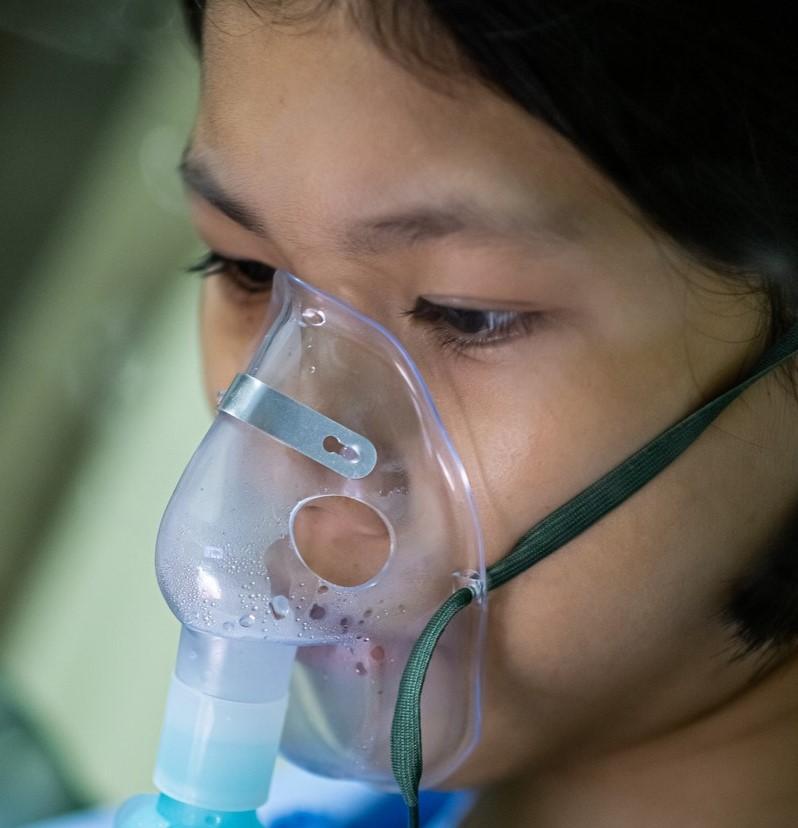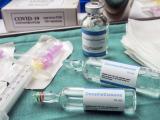Today in JAMA Network Open, two studies detail long COVID and multisystem inflammatory syndrome in children (MIS-C), with Swedish researchers reporting that long COVID is rare in this group—but hospitalization or having a parent with long COVID dramatically increases the risk—and another finding that a significant proportion of US and Canadian youth who had MIS-C have persistent neurologic and psychological symptoms.
Long COVID, also called post-COVID conditions (PCC), is a syndrome featuring the persistence or new onset of COVID-19 symptoms more than 3 months after infection, most often in adults, but also in children. Common symptoms are fatigue, shortness of breath, and muscle weakness.
MIS-C is a rare but serious condition that typically occurs 2 to 6 weeks after SARS-CoV-2 infection, causing inflammation of the organs. Symptoms often include fever and severe illness requiring hospitalization.
Role of hospitalization, parent with long COVID
For the first study, University of Gothenburg researchers analyzed registry data from 162,383 children aged 6 to 17 years living in the two largest Swedish regions who were infected with SARS-CoV-2 from January 31, 2020, to February 9, 2022, with follow-up until November 30, 2022.
The average participant age was 12.0 years, 50.4% were boys, 0.3% had been hospitalized for COVID-19, and none of the 326 children with long COVID (0.2%) had been admitted to an intensive care unit (ICU).
Children at highest risk of long COVID included girls (incidence per 100 person-years, 0.19 vs 0.12 in boys), older youth (0.19 in those aged 12 to 17 years vs 0.11 in younger youth), those with underlying illnesses (0.16 with vs 0.11 with none), and hospitalized patients (1.25 vs 0.15 in outpatients).
The incidence of long COVID was higher among girls than boys and similar across parental education levels. Children diagnosed as having MIS-C (63) had a higher incidence of long COVID than those without the condition.
The incidence of long COVID was six times higher if a parent also had long COVID. "The higher cumulative incidence of PCC among children with a parent with PCC may indicate that the etiology of PCC could involve genetic susceptibility, or that parental experience of long-term symptoms raises awareness of symptoms and facilitates navigation of the health care system," the study authors wrote.
Because the number of MIS-C cases in the study was low, the researchers called for more study of the association between MIS-C and long COVID.
Worse mental health, including depression
The second study, led by Boston Children's Hospital researchers, consisted of in-depth testing of 64 youth aged 5 to 20 years diagnosed as having MIS-C and 44 matched sibling or community control patients at nine sites in the United States and Canada. MIS-C patients had been released from the hospital 6 to 12 months earlier and were diagnosed as having the condition from November 2020 to November 2021.
Participants were interviewed and received a virtual neurologic exam and neuropsychological evaluation that included cognition, behavior, quality of life, and daily function. MIS-C patients were, on average, 11.5 years old, and 31% were girls. The average age of controls was 12.6 years, and 45% were girls. Two of 62 MIS-C patients and 3 of 37 controls reporting receiving two doses of a COVID-19 vaccine before they were diagnosed as having MIS-C.
Of the MIS-C patients, the mean length of hospital stay was 5 days, 55% were admitted to an ICU, and 27% had severe cardiovascular dysfunction. Thirteen of 62 MIS-C patients (21%) had neurologic involvement during their infections, 8% were hospitalized within 30 days, and the median interval between hospital release and evaluation in the study was 7.9 months.
Enhanced neurodevelopmental monitoring after hospitalization for MIS-C may be warranted for early identification and treatment of neurological and psychological symptoms.
MIS-C patients showed neurologic abnormalities more often than controls (25% vs 7%; odds ratio [OR], 4.7). While both groups performed similarly on most cognitive tests, MIS-C patients scored lower on the National Institutes of Health's Cognition Toolbox List Sort Working Memory Test, an indication of executive functioning (key mental health skills; average score, 96.1 vs 103.1).
Greater social vulnerability, lower left ventricular ejection fraction (indicating cardiac dysfunction), and ICU admission were linked to worse executive functioning. Abnormal neurologic findings weren't tied to psychological outcomes.
Parents of MIS-C patients reported worse psychological outcomes in their children than those of controls, particularly for depression symptoms (average score, 52.6 vs 47.8) and somatization (physical symptoms related to mental conditions; average score, 55.5 vs 47.0). Average self-reported (79.6 vs 85.5) and parent-reported (80.3 vs 88.6) quality-of-life scores were also lower in MIS-C patients than in controls.
"Until larger studies validate findings and assess longer-term neurobehavioral outcomes, enhanced neurodevelopmental monitoring after hospitalization for MIS-C may be warranted for early identification and treatment of neurological and psychological symptoms," the researchers concluded.




















